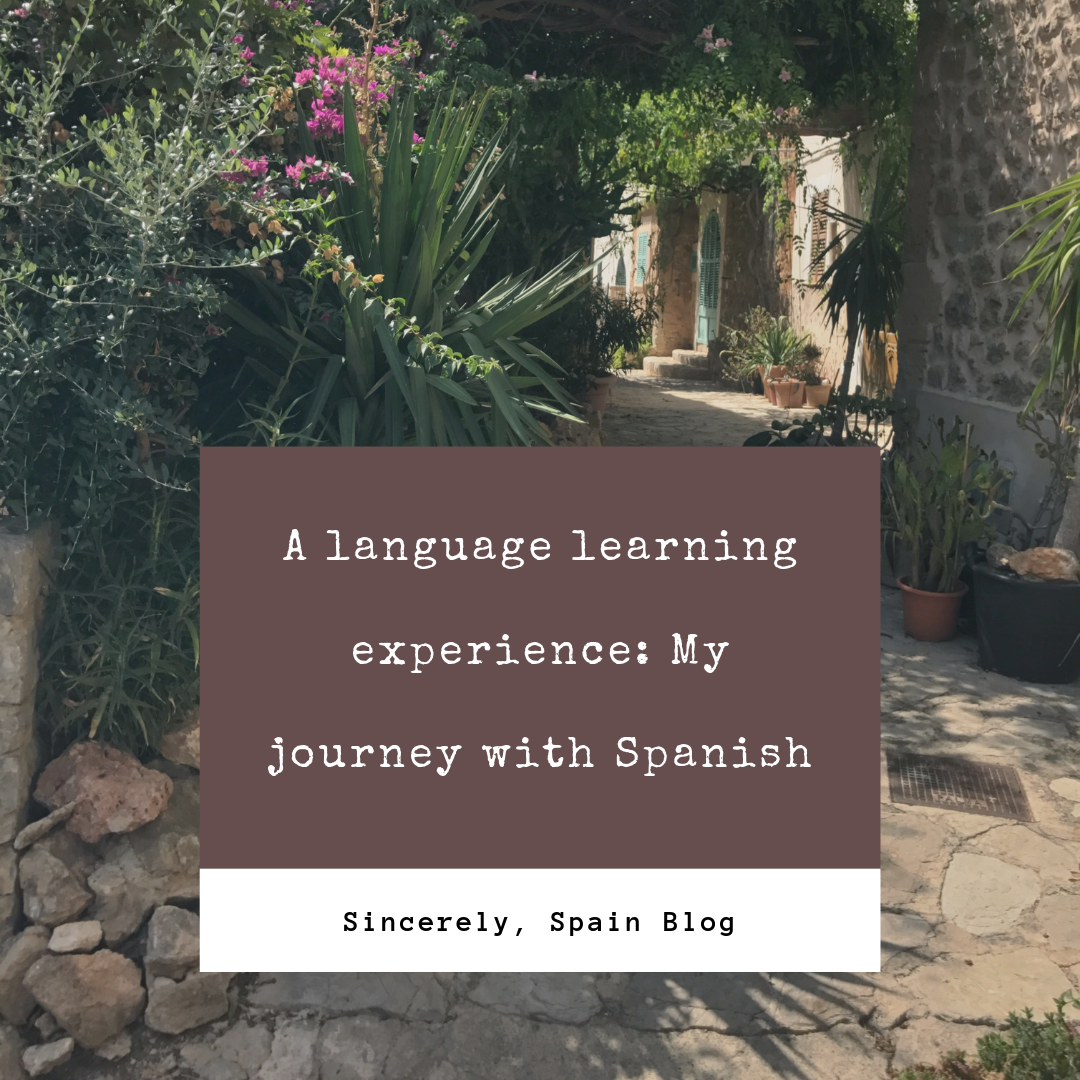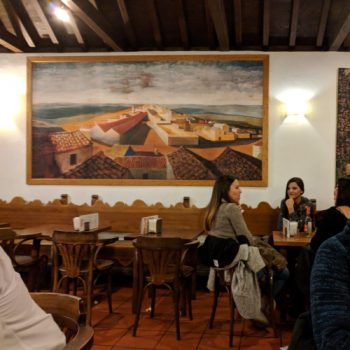
My Experience Learning Spanish
Dear Jean,
I am told that I have a gift for languages and accents. And that I shouldn’t have any problem picking up new ones (although, tell that to my giant fear of learning Finnish). On one hand, I try to understand when people tell me this. I do feel like I am able to communicate—relatively easily—with people, oftentimes regardless of the language(s) we speak. When it comes to languages that I don’t speak like Italian that are related to ones I do speak, I can usually make myself more or less understood and can easily pick up words. When I am trying to communicate when the language is very different from what I am used to, I try to use the three tips I talk about in this post: find basic points in common, use body language, and be okay with not understanding.
However, no matter how good people think I am, I still question my skills on a regular basis and if someone asks me if I am fluent or bilingual, I always want to know how they define these terms before I am willing to answer. That is because, at least for me, learning a language is not only complicated, it is also a never ending process. That is, I will probably never stop making mistakes or, what I consider to be, learning. I think most language learning processes can be ambiguous: difficult but simple; long but passing quickly; and frustrating but extremely rewarding. This is what I have been asked, so I assume you will be too…
Why do you want to learn the language?
This is something people always want to know and this means I end up questioning myself as well. Sometimes—like when I wanted to learn Portuguese—it was this burning desire to learn a language I found beautiful. Now I am in Finland, I want to learn at least a little bit of Finnish because that feels like the right thing to do. However, for me, learning a language is a very personal thing. It is something that you have to want, for whatever reason, otherwise learning the language will feel more like a chore than something you really want.
This is something I have been lucky enough to see from multiple perspectives as I have many friends who are different from me, who are from places all around the world, who speak a variety of languages. I have also taught English in a multitude of settings. In fact, I started teaching English as a second language in 2007 to non-native speakers in my hometown. Over ten years and many students of different backgrounds and ages later, I believe that there is no one right reason to learn a language but ways to find the right fit for each individual.
At the same, if you are going to be learning a “weird” language or do it in a not “normal” way, you should expect that people question why. Even learning Spanish, I have had people ask why I would want to spend so much time learning the language—and Spanish is relatively normal. I know people who have decided they want to learn Japanese because of Anime (instead of English) and I fully support that. However, the external expectations we face don’t always seem to promote this kind of learning. Therefore, I think it is really important for each person to know why they are learning something and accept that as being right… for them.
Pro-tip: Whether it is a gut feeling or the sense of need to learn the language, know your reasons. It might not placate anyone else, but at least you know your why!
 Are You good at Spanish?
Are You good at Spanish?
We talked about being fluent in a language in this article, but I am constantly thinking about the differences between fluent and bilingual. I am genuinely interested in understanding what other people think these definitions means and tend to contemplate how I rank myself on a scale of one to really good (not actually an official scale). In the end, however, I realized that everyone has different definitions of the terms and distinct expectations when they use them.
What this means to me is that being “good at a language” is a fluid idea that depends a lot on what you are looking for. I know people who highly value grammatical correctness. Several people in my life focus on the rules and structure of the language. They will be able to tell you the rules and share insight if you are questioning how to write/say something. For me, being grammatically correct is really hard—even in English I am prone to make mistakes—and I will probably always want to have someone correct my Spanish and Portuguese if I am writing official texts, no matter how much I practice (and I have practiced quite a lot—see my top tips here).
On the other side of grammar (although not mutually exclusive), I would put communicative ability. The way I personally tend to learn a language is by copying what I hear around me. Therefore, the more time I spend talking to someone from a specific region, the more I will pick up on the terms and sayings that they use. I will happily repeat something that is not grammatically correct—probably without noticing—because it is something I am familiar with. However, this side of language can be really hard for others. In fact, I know people who have gone on to pass C2 of the DELE (the highest level of Spanish exam) who aren’t very good at carrying out everyday interactions.
Pro-tip: Don’t let someone else’s definition of being good at a language define what is important to you.
 How Did you get good at it?
How Did you get good at it?
After that whole spiel, you are probably wondering how on earth I am going to give you advice on how to learn Spanish an my answer is: find what works for you. Honestly, figure out what makes you want to learn the language, how you learn, and what inspires you and figure out your own language learning journey. Most of the time I would recommend that you spend some time either at a Spanish school or with one-to-one Spanish classes because that can really help develop your language skills (I have personally done hours and hours of both). However, I would not recommend that be the only way you learn the language.
If you really want to dive into Spanish, I think you have to find ways to incorporate the language into your life that are fun for you. For example, to disconnect, I love reading but don’t really watch t.v. in Spanish or otherwise. That means that when Dani recommends a new series in Spanish to me, I probably won’t watch it, even if she tells me it is really good. And that is okay because I am likely to pick up a book or do a yoga class in Spanish or go for a coffee with friends—all different but equally good ways to learn a language.
I truly believe that we all learn differently and that you should play to your own strengths when it comes to studying a language. If you don’t know what kind of learner you are, try a bunch of different things until you find something that fits. For some people free youtube videos are enough; other people need to pay for classes to be motivated. But if you can find what works for you, you will be able to see your skills grow in ways you might have never imagined. One final benefit of learning a language in a way you are comfortable is that you will be able to grow your confidence (read this article to learn more about why we think this is important).
Pro-tip: Design your learning process for your own needs, skills, and strengths. Take other people’s suggestions if you want but don’t subscribe to ways of learning that don’t fit you.
However, it still will probably never stop being a language roller coaster
Dani and I are both different types of learners and we both have different reasons for wanting to learn Spanish. However, we met years ago at a language exchange or intercambio (read about our story here), a way we were both interested in practicing our language skills. As we have gotten to know each other, it is funny to see how our language learning paths have crossed and separated over and over. We talk about how to improve our skills—and that is why we share so many language learning resources with you—and try to figure out why we don’t feel like we are getting better.
The learning process is a complex one that I like to say is a roller coaster: for awhile you will feel like you are improving and getting better, then you will probably feel like you plateau, followed by feeling like you are actually getting worse (it is not true, you are just working on harder things!). While we dive deeper into this feeling in this post, I think it is important to recognize that language learning is a journey. And, like everything in life, your journey will be unique to others around you.
What has your experience learning Spanish (or another language) been? What worked or didn’t work for you?
Sincerely,
Claudia





